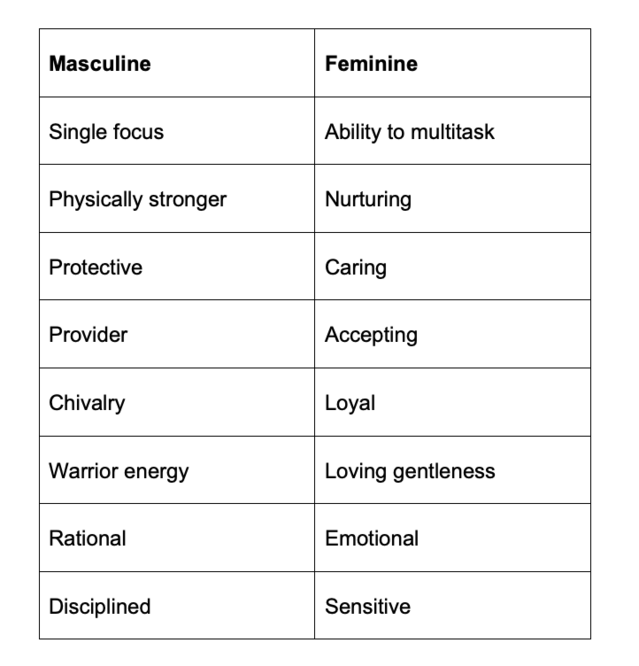Gender
Father’s Day and Masculinity in 2021
You don't have to go it alone; modern masculinity is about connection.
Posted June 20, 2021 Reviewed by Kaja Perina
Key points
- Ninety-five percent of respondents in a study agree that the top characteristics of a modern man are being accepting and embracing equality.
- Seventy-five percent of respondents believe that being a modern man is to become more community-, environment-, and purpose-oriented.
- Modern masculinity calls men to master qualities that are traditionally considered more feminine. Great fathers are masters of this.
Father's Day is a great day to reflect on manhood and modern masculinity and what it means to all of us. In 2020, the Mantorshift Institute conducted a qualitative research project in the US, the UK, France, Germany, Austria, and Jordan and Iran. More than 200 men of various ages and backgrounds were interviewed.
In a previous blog, I discussed the first two findings:
- The discussion about modern masculinity is progressive rather than reactionary. Only men and women together can create better ways of equality and change the way we treat each other. We are creating a new future together.
- The definition of masculinity is beyond gender. Two-thirds of respondents believe that masculinity and femininity go beyond gender and should be defined for each individual
We have also discussed a softer form of the traditional masculinity concept, the expectation of being the sole tough protector and provider in a family or a relationship. This notion puts extreme pressure on men and often leads to mental health issues while also affecting relationships at work, at home, and amongst friends. We call this “The Atlas Complex of Men,” the notion men carry the weight of the world on their shoulders alone, and it will collapse unless they continue to do so.
In this blog I will share the next three findings, which strongly relate to the question why men feel alone so often, and how the connectedness aspect of modern masculinity can help to alleviate that.
Finding #3. Ninety-five percent of the respondents agree that one of the top characteristics of a modern man is to be accepting and embracing of gender equality.
It is about allyship. Modern masculinity and being a modern man mean treating others as equals, especially women. An interesting finding is that many respondents mentioned that this is easier done when you grow up around strong female figures and are surrounded by sisters and/or a female twin.
Modern masculinity accepts diversity in society and appreciates the value of gender equality. It's about being mindful and thoughtful towards each other's feelings and, by extension, of other cultures.
Modern masculinity is a mix of masculine and feminine—part strength and part kindness. It's understanding the evolutionary values and roles of men and the relationship in society with the new generations. It is a new way of relationships, and new way of having a relationship with money, family, and work. Allyship also means, that while men need to do more for equality and women, men are not alone; instead they are part of a strong alliance of equals, which implies stronger mutual support both ways.
Finding #4. Seventy-five percent of respondents believe that being a modern man is to become more community-, environment-, and purpose-oriented.
Modern masculinity uses a man’s competitive nature in a positive way. It's a shift in the attitude towards belonging to a community and being more respectful of others.
It has to do with finding meaning in life, developing solid values, and being conscious of self. Modern men are in touch with their feelings and vulnerability, and they strive to be their best self beyond the programming they received from society. Their higher purpose connects them to something larger than their ego, and they care to understand the greater good beyond their own self-interest.
Modern men are in touch with both their minds and their hearts. They are willing to acknowledge, evaluate, and validate their feelings and not run away from them. This, in turn allows them to connect better with other men and have deeper relationships.
The roles of modern men are also evolving. It used to be little girls who were supposed to do the chores. Men used to participate very little in household management and child-rearing. This is changing, with modern men becoming more of a partner in a relationship where all roles are shared and discussed. Fatherhood is identified and is a key role for modern men.
Finding #5. An important step towards modern masculinity is men's mastery of certain qualities and competencies that are traditionally considered to be more feminine.
The majority of our respondents do not equate gender with expressions of masculinity and femininity. They believe that a healthy human needs to have a balance of both masculine and feminine. The following is a list of how men around world think about masculine and feminine traits. It should be noted that about 10% of our respondents believe that this an artificial way of thinking about human traits and therefore cannot or will not answer the question of what qualities they consider to be masculine and feminine.

Almost all respondents agree that the “old model of masculinity” is defined as:
· Money making and providing
· Physical protection/strength
· Willingness to fight in wars
· Macho appearance
· Chivalry / gentlemanly style
· Power orientation / authoritarian style
· Telling rather than asking
The “old model of femininity” is defined as:
· Nurturing and caring
· Collaborating
· Listening
· Showing compassion and empathy
· Expressing emotions
· Caring for the family
Our respondents agreed that the old model doesn't serve us well anymore. In the next blog we will share more about the new model and the defining characteristics of modern masculinity and the key challenges associated with it, as seen by our respondents.
Father’s Day is a reminder to all that being progressive shouldn’t mean that we need to forget masculinity and femininity or to dismiss the role of genders in child-rearing. A great father has a wonderful balance of masculine and feminine, and I am forever grateful to my father for teaching me what it feels like to be seen, soothed and secure.




